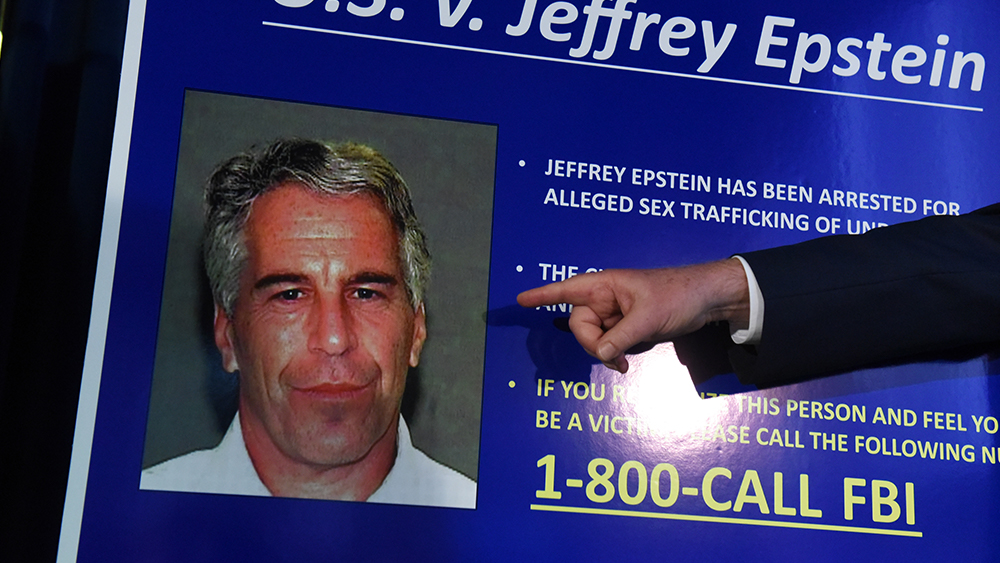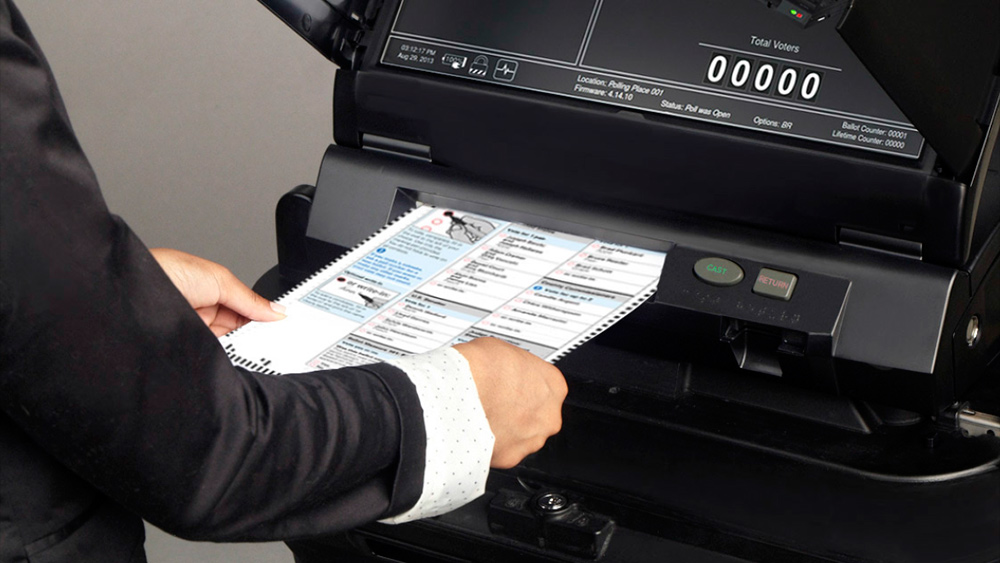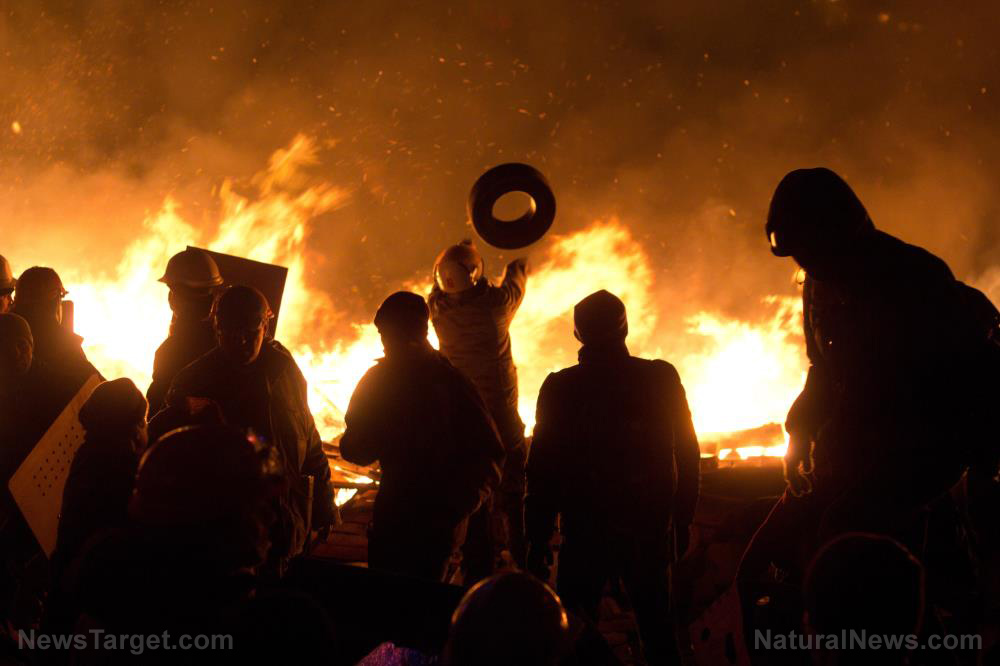More and more children are getting hurt in American workplaces as CHILD LABOR VIOLATIONS skyrocket by 600%
01/17/2024 / By Arsenio Toledo

The Department of Labor‘s Bureau of Labor Statistics found that nearly 6,000 children, some of whom as young as 10, were being illegally employed in American workplaces in 2023, with fast food restaurants being among the worst offenders.
According to the Labor Department’s data, child labor violations have more than tripled in the past 10 years, with violations in the food service industry increasing by nearly sixfold. In the first nine months of 2023, Labor Department officials found more than 4,700 teenagers under 18 working in violation of federal child labor laws. Of these, more than three-quarters worked in the food service industry. (Related: State legislators would rather resurrect child labor than pay adult workers better.)
For comparison, for all of 2015, Labor Department officials only found a little over 1,000 teenagers illegally employed.
Fast food companies that depend on the franchise business model had much higher rates of violations than those that did not. Franchise-heavy McDonald’s averaged 15 violations per 100 stores in 2020, ranking among brands with the highest rates of violations. Dairy Queen, Little Caesars, Wendy’s and Zaxby’s also had some of the industry’s highest rates of violations per store since 2020, with all these and other top companies relying on franchises that license out operation of their stores to small business owners.
Investigative reporters Lauren Kaori Gurley and Emmanuel Martinez speculate that franchised stores may have higher rates of child labor violations because they are under pressure to limit labor costs to offset steep corporate fees. Franchise fees can range from $20,000 to $100,000 or more for multiple locations.
Roughly 90 percent of McDonald’s 14,000 stores are owned by franchisees. Since 2013, the fast food giant has racked up more than 2,300 child labor violations.
By comparison, Starbucks, the country’s second-largest food service chain with over 16,000 stores in the U.S., has received no citations for violating federal child labor laws since 2013. The company also sticks by its policy of not hiring anyone under 16 outside of Montana, where the minimum employment age is 14.
Children illegally employed struggle with their health and in school
Given the illegal nature of their employment, children in workplaces are more susceptible to experiencing injuries on the job.
In Nashville, Tennessee, a construction contractor hired 16-year-old Gustavo Ramirez to work on building a hotel. He was posted to work 11 stories high on the hotel’s roofline – reportedly without a safety harness – when he lost his footing and slipped. He fell 160 feet to his death.
His older sister Jenifer says Gustavo wanted to earn enough money to afford his first car. Gustavo reportedly assured his family that he would be doing simple tasks, like cleaning up to help maintain work sites.
Gustavo’s experience is unfortunately not unique. In the summer of 2023, at least three other teenagers died at their jobs, including a boy in Missouri who died after getting pinned by a semi-truck at a landfill.
While these deadly injuries are still rare, total workplace injuries and illnesses among employees under 18 are becoming more and more common. Scripps News found that workplace injuries and illnesses among minors rose from about 3,400 incidents in 2011 to more than 6,500 in 2020.
Those not getting hurt by the nature of their jobs are suffering in other ways, including declining academic performances and a near-total loss in future college prospects. This is how Tyler Karpinsky described his experience when, in 2018, at the age of 15, he got a job at a McDonald’s in Rutland, Vermont that was later cited by the Labor Department for overworking its teenage employees.
Karpinsky wanted to save up for a trip to Europe with his mother. But his pay of around $11 an hour ended up going to help his family with groceries and utilities. Soon, he was working for over three hours on school nights. This resulted in him missing dozens of assignments. The lack of sleep caused him to doze off in class and for his grades to tank. His future college prospects were nearly threatened.
Karpinsky’s managers sometimes kept him running the cash register and taking drive-thru orders for longer than three hours on school nights – a violation of federal labor laws. Managers would also ask him to stay late when someone had called off.
Karpinsky believed this “was normal.” But “I was scared that I wouldn’t have a high enough GPA [to go to college] by the time I graduated,” he added.
Coughlin, Inc., the operator of the McDonald’s where Karpinsky worked, had among the highest rates of child labor violations for food service employers nationwide. In just nine stores in New Hampshire and Vermont, the company paid $109,000 for violations in 2022. These violations included allowing more than 140 employees ages 14 and 15 to work beyond legal hours and to use manually operated deep-fat fryers and ovens. At least two kids were burned working these stations.
Watch this episode of “About George with Gene Ho” on AMPNews as host Gene Ho and guests Dave Blaze and Rachel “Writeside Blonde” discuss the possibility of child labor laws being relaxed all over the United States.
This video is from the Patriot.TV channel on Brighteon.com.
More related stories:
Large companies lobbying to hide import data that could link them to SLAVERY and CHILD LABOR.
McDonald’s now resorting to child labor to resolve “staffing issues.”
Sources include:
Submit a correction >>
Tagged Under:
big government, child labor, child labor violations, child workers, corporations, dangerous, deception, enslaved, fast food, humanitarian, insanity, McDonald's, trafficking, tyranny, workplace injuries
This article may contain statements that reflect the opinion of the author
RECENT NEWS & ARTICLES
COPYRIGHT © 2018 ENSLAVED.NEWS
All content posted on this site is protected under Free Speech. Enslaved.news is not responsible for content written by contributing authors. The information on this site is provided for educational and entertainment purposes only. It is not intended as a substitute for professional advice of any kind. Enslaved.news assumes no responsibility for the use or misuse of this material. All trademarks, registered trademarks and service marks mentioned on this site are the property of their respective owners.




















